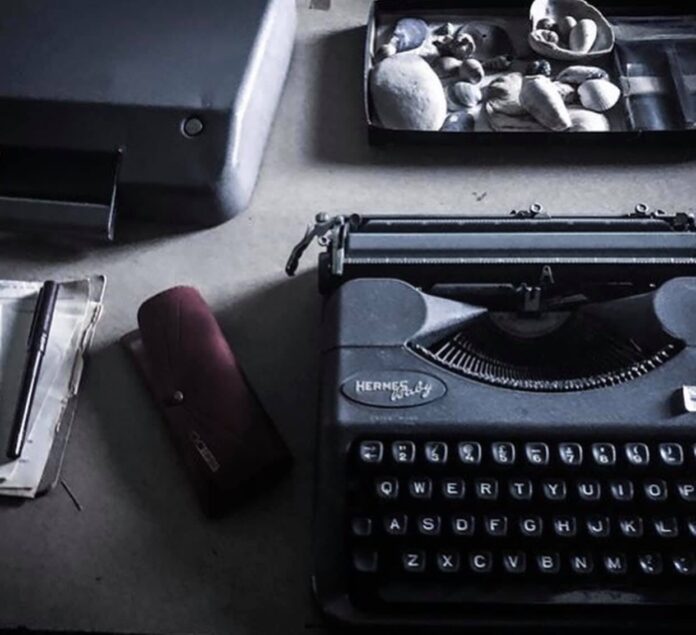One of the hot discussions in the field of paranormal over the years was the subject of research before conducting a paranormal. While I wrote about this a few years ago, the field of the paranormal field has changed significantly, so I felt that it was time to address the topic again and include your ideas, comrades too! There is no right or really wrong answer to this question because everyone works differently and for various reasons. However, I think that if we weigh it and talk about both sides of the argument, this may help us as researchers and researchers to think about other views and perhaps even experience a new approach.
To start, let’s take a look at some of the typical arguments used on both sides of the fence. These are just some things that I heard over the years on both sides.
To search:
- Realistically, people can access a location for a limited time. In order to use time more productively, history can help in planning at night to achieve maximum use of time.
- Knowledge of history means that you can formulate questions or techniques based on historical events.
- You can try to re -create/expose the site -related claims
Non -search
- Many people who have a psychological ability feel that they should enter a blind site if they are planning to use their capabilities. This is so that their knowledge of history does not overlap or affect what they take.
- Investigators love to go to a blind site so that they do not allow them to know the influence of the investigation. They believe that they may be aware of things in things to suit a specific narration in order to match history.
- Some are there for a model “ghost chasing” that is looking for a paranormal activity instead of historical connection. In essence, they look forward to an experience or search for something pawing.
Personally, I prefer to enter a lot of knowledge about the place and people as much as possible. Let me tell you why. I am not a sensitive person, and I am not a mediator. I cannot walk in a blind position and be able to tell you what was done there and who we might communicate with. Certainly I know why people who have these gifts want to blind and personality, I agree that they should read the site. If you are using a mediator and they are not given any information at all, and if what they pick up is real, and if this is later identical to historical information, they have done a great job and I am sure that it should be a feeling of achievement to verify their feelings and results. As someone who does not have the ability to do this, I need to know him before entering, as I feel this makes me a better investigator. Another point must be observed, if you go blind, how do you know the areas targeting? If you do not know the history of the building and where certain things occur, how do you know the areas to be investigated. If you are going to close the cameras, for example, how do you know where they are placed if you don’t have any information on the site? Although you still have to investigate a site as a whole, any claims should be investigated and may have been exposed, which means targeting these specific areas. There is a difference between achieving the paranormal and hunting ghosts. The extraordinary investigation usually consists of people trying to obtain data to be able to verify the validity of the claims. If there is a specific room in which the activity is reported, I will see whether I can repeat this activity. I will see whether I can document this activity. What is its source? Is there a possible reason for the occurrence of activity? Is there a history of this activity over the years? Where do this activity reports come from? This is information I don’t know if I will go blind. I think the search for ghosts is more than that and see what you find. Although this can be fun and it is a method that many love to work with, it is not mine. We all work differently and if this is the way you like to do, do what suits you!
When I entered a blind investigation, I find it difficult to communicate. What kind of questions do I ask if you do not know what happened there? Certainly, I can ask the usual questions.What is your name, how it died, what did this fo building usedR “and so on, but how much you may have a actual response? Or if you are registering the EVP session and not listening directly, you do not hear the answer until after the truth when the time is too late. They die there?
Below what some readers said from Llifs in this regard (thanks to all those who answered. I couldn’t include everyone, but I tried to show both the two arguments)
Jawhar al -Sufi
However, I prefer not to be familiar with the area, I find the site in the maps, and look at what exists. I think this is more safety than the investigation.
Scott Boucanan
Ideally, I would like to know a little about history but without any details so that I can put my questions appropriately. In this way, I can search for responses after that and compare them historically. Then we hope that you will return to a second investigation with greater knowledge, in -depth questions to find out how the answers change.
Elita Kenley
I am looking before I go, I want to make sure the claims are correct and give me an idea of what can be talked about in the EVP session.
Rebecca slaughtered Boer
Really depends. If the customer makes claims for something happening on the site, I will try to verify the validity of these claims. In addition, our team is sure to reach the person is the owner. In the United States, people claimed possession of property and do not do so. We would like to verify this with verbs. If the site will be a long -term search, we have a unique opportunity to enter without any prior knowledge. If we are doing only one and doing, we would like to have a group of people knowing everything we can collect before the investigation.
And mcmath
blind. History should not make a difference in the presence of a possible paranormal. If there is activity, there is an activity.
Parani
Personally, I think that depends on your methodology.
For some, it will be specific to others, part of their standard protocol.
For example, we are not really visiting sites for the purposes of pursuit.
Because of my interest in history in general, I may have some knowledge. For Laura, you will not be aware.
However, if you are driving 300 miles to conduct an investigation, I want to know where the reported activity occurs.
I know selfish, but I don’t want to lead this away to focus my attention on the cell, when all the activity occurred in the bathroom.
Jackie Medor
Always search for a site after the customer’s preliminary interview and before the date of the investigation. I never went to blind. The main reason is the safety of my team first physically and spiritually.
Rebecca Willis
I prefer to go blind but have faults.
any. Not recognizing the importance of some responses.
To provide
Never raise it when matching the evidence you receive
There are benefits for both rituals and I do not necessarily an easy answer when there is a lot to consider. You have a strong historical historical relationship at a level of shame, which means that you cannot avoid much date, which is the complete reason you go. An example of this is a location like Lizi Borden’s house. You will know some basic information, otherwise why will you go there in the first place? There are only some sites that you can not go completely blind, even at the subconscious level, there is information you know. Some of them may be rumors, some may be legend, and so in this case, it is better to go there aware of realistic information, not rumors. Other less well -known sites have an indescribable date awaiting its recovery. Some have psychological capabilities on which they depend on this to a “blind” approach, while others use the equipment and techniques in which some historical knowledge can be of useful. The length of the investigation also matters. Are you there for a long time or an enjoyable time? Weight everything and do what works for you and your team. Your position on this will be possible and develop over the years and it is important to embrace this as well. Anyone there says that you just have to do this in this way doing themselves. I find it interesting that more than a decade ago, we have been dug a lot to us as investigators that you should not know any date. I think this approach came from TV at the time because investigators are usually blind and then check everything in the end with a historian. Today, it seems that more people are open to knowing history. There are no difficult and fast rules, only those you make for yourself. Not limited to the restrictions and opinions of others who tell you this is what real paranormal investigators do.
If you enjoy Llifs, think about buying a book (known as Buy Me A Coffee but I don’t drink coffee and love books). Your donation helps to finance Llifs so that everyone can continue to access the wonderful content and resources of free paranormal!

